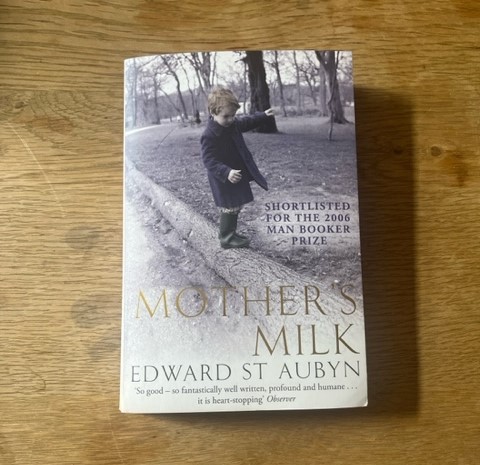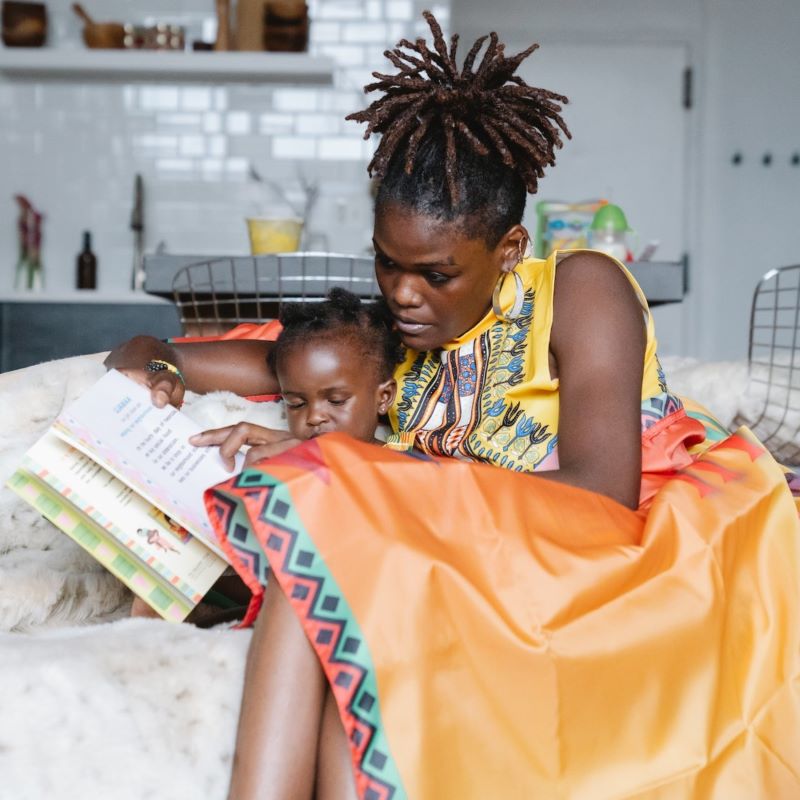As we celebrate Mother’s Day in the UK this month I started thinking about the vast range of mother characters in literature.
From the 19th century’s loving and capable ‘Marmee’ in Little Women, through to the resourceful and resilient 21st century ‘Ma’, held captive with her son in Room, literature offers up all types of maternal figures and relationships.
The actual process of mothering is best left to non-fiction authors (see Mother Power review). But of course mothering in all its many contexts and styles is central to so many novels.
 My pick for fictional matters maternal is Mother’s Milk, fourth in the series of Patrick Melrose novels by Edward St Aubyn. (The others are Never Mind, Bad News, Some Hope, and At Last, but Mother’s Milk can be enjoyed without reading the series.)
My pick for fictional matters maternal is Mother’s Milk, fourth in the series of Patrick Melrose novels by Edward St Aubyn. (The others are Never Mind, Bad News, Some Hope, and At Last, but Mother’s Milk can be enjoyed without reading the series.)
All manner of approaches to parenting are covered in its pages, but it’s the depiction and exploration of the ‘mother characters’ which stood out for me. These characters are far from inspirational by the way, but interesting. From the obsessively maternal Mary (Patrick’s wife) to the distant (Kettle, Mary’s mother) and the demented Eleanor (Patrick’s mother) the relationships these women have with their children are compelling and thought-provoking. St Aubyn’s point seems to be that we are largely powerless to change our parenting styles from the models and influences we were subject to ourselves as children. Indeed Mary’s determined attempts to be the very opposite of her own mother led her to spoil her son to the detriment of her marriage. ‘Mary was such a devoted mother because she knew what it felt like not to have one.’
It can all be rather grim, but amid the caustic awfulness of his tale, St Aubyn provided me with some laugh out loud moments. I really enjoyed his writing style and had to stop simply to re-read and savour some of his sentences for their wit and apposite observations.
Here are some other recommendations:
Jonny Moreland – October Books, Portswood, Southampton
My favourite fictional mother is the unnamed narrator of Lucy Ellmann’s masterpiece, Ducks, Newburyport (2019). She is, in many ways, the unseen mother behind every suburban home. While untraditional in its presentation – Ducks, Newburyport is written in a stream-of-consciousness – she is nevertheless presented with a depth, humour, and empathy I’ve never experienced before. As she struggles with the anxiety of her children growing older, illness, and the increase in dangers from outside her familial home – climate change, the effects of media supersaturation on her children, the rise of right-wing extremism – Ellmann portrays a woman who is fatally unsure of herself, but nevertheless brimming with humour, deep intelligence, and a warmth unmatched in contemporary literature. Real, raw, unflinching, boundlessly inventive, heart-breaking, and absolutely hilarious. Never mind my favourite mother in fiction, she is one of the most fully realised characters to arrive in the last 20 years.
Allison Walker, Reading and Resources Development Officer, Southampton Library Services
My standout maternal character at the moment is Lydia, the mother in American Dirt by Jeanine Cummins. The book tells the story of Lydia and her young son Luca, as they flee for their lives from a Mexican drug cartel, who in a terrible act of revenge have murdered most of their family.
What the author vividly portrays is a mother’s fierce determination to protect/save her son at all costs, given that she has little choice but to go on the run and place him in precarious and dangerous situations. This is especially so when they ride on the roof of ‘La Bestia’ a freight train, also known as the ‘Train of death’ which is used by illegal immigrants from Central America to cross into Mexico and ultimately to the USA border.
Linda Gatland, Publicity Organiser for Read Easy Southampton
My pick is Laura from Mother’s Boy by Patrick Gale. This is a fictional biography: a novel recreating the early life of the Cornish poet Charles Causley and his mother Laura. Although based on established facts and diaries, it uses fiction and conjecture to fill in the blanks. Causley lived with his mother throughout his life and Gale says, ‘It’s no exaggeration to say she was the love of his life’. Laura is emotionally intelligent and mentally strong, both disciplined and dignified.
For Laura ‘her fantasies were never about men and courtship…her fantasies were all about motherhood’. She loses her husband to TB after the First World War, and then must provide everything and raise Charles alone. She is a laundry woman, always carrying a heavy bag of washing, endlessly scrubbing and mending. Her industrious activity is a refuge from her grief. She pours herself into her relationship with her son, but she is no stereotypical smothering mother.
When Charles is beaten at school and his glasses are stamped on, she maintains his pretence it was an accident, sensing his need for dignity. She accepts his love of disguises and dressing up. She sees his potential but worries about how his cleverness makes him different to other children. Her life experience is limited, and she cannot envision a future for him. More differences emerge as his literary prowess starts to place a barrier between them.
Their intense early bond begins to widen to a gulf of misunderstanding. His secretive nature makes her feel excluded, and she badly upsets him by arranging a job for him without his knowledge. She is disappointed: “She had always believed that motherhood would guarantee her one person she knew as well as she knew herself…”
In the Second World War Charles joins the Navy. Laura shows great stoicism, declining to see him off at the station, knowing the emotions will be too raw and painful for him. She ignores her own desperate need to give him a last wave goodbye. Their great love is conveyed with enormous tenderness.
Their life after the war contains mentions of conflict, describing her outbursts of anger, complaining she has more to do than wait in for him and wash his clothes. The relationship is becoming a pseudo ‘marriage’ with the two locked together in mutual dependency, a mixture of resentment, tenderness and affection. We never know if Laura understands that Charles is gay; early on she seems innocent of this, but her later observations show she knows he will never have a relationship with a woman. She is possibly secretly pleased.
I was left longing to know more about the real life Charles and Laura and the book made me reflect that such relationships are often misjudged by outsiders; that far from being a prison, they are often a refuge for both. This is a beautiful novel about a mother and son, with insights into poverty, class, creativity, the misery of war and love in its many varieties.
Poppy O’Neill – author of Mother Power, A Feminist’s Guide to Motherhood
My favourite fictional mother is Molly Weasley from the Harry Potter books, for her insistence on being heard, her welcoming nature and her messy house.
(Look out for our review of Mother Power : A Feminist Guide to Motherhood, coming soon).
- Who is your favourite fictional mother/maternal character? Why not share your thoughts in the story comments section on our Facebook page?
- Picture: Greta Hoffman.
- In Common is not for profit. We rely on donations from readers to keep the site running. Could you help to support us for as little as 25p a week? Please help us to carry on offering independent grass roots media. Visit: https://www.patreon.com/incommonsoton

